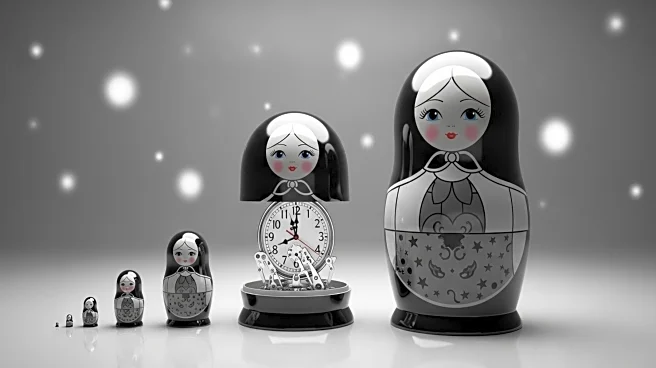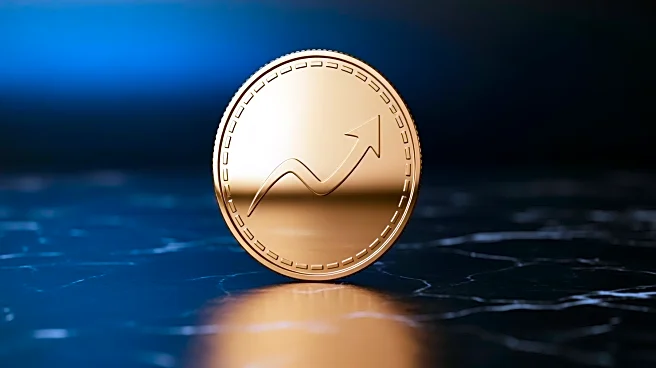What is the story about?
What's Happening?
Russia's economy has entered a phase of 'technical stagnation,' according to German Gref, the head of Sberbank, Russia's largest bank. During an economic forum, Gref highlighted the slowdown in GDP growth rates, noting that the second quarter of 2025 can be considered as technical stagnation. The economy expanded by 1.8% in the second quarter, slightly up from 1.4% in the first quarter, but significantly lower than the growth pace in 2024. The Central Bank of Russia anticipates further slowing in the third quarter, with growth approaching zero by late 2025. This downturn is attributed to the limits of Russia's war-driven expansion, characterized by record defense spending but weakened by low private consumption and reduced civilian investment. The International Monetary Fund has revised its growth forecast for Russia in 2025 to 0.9%, a steep decline from 4.3% the previous year.
Why It's Important?
The stagnation of Russia's economy has significant implications for global economic dynamics, particularly affecting countries with economic ties to Russia. The slowdown may impact international markets, especially in sectors reliant on Russian exports. Additionally, the economic challenges faced by Russia could influence its geopolitical strategies, potentially affecting international relations and security dynamics. The situation underscores the limitations of an economy heavily reliant on defense spending, highlighting the need for diversification and increased private sector investment. Stakeholders in the global economy, including investors and policymakers, will need to monitor these developments closely as they could have ripple effects on global economic stability.
What's Next?
The Central Bank of Russia may consider further adjustments to its key interest rate, currently at 18%, to stimulate economic recovery. German Gref suggested that a reduction closer to 12% might be necessary to foster hope for economic improvement. Additionally, the Russian government may need to implement policies to boost private consumption and civilian investment to counteract the stagnation. International observers and economic partners will likely watch these developments closely, assessing potential impacts on trade and investment. The situation may also prompt discussions on economic reforms within Russia to address structural weaknesses and enhance economic resilience.
Beyond the Headlines
The economic stagnation in Russia highlights broader issues within its authoritarian system, where senior technocrats have limited flexibility in addressing economic challenges. The reliance on defense spending and the lack of diversification in the economy pose long-term risks, potentially affecting social stability and public sentiment. Rising prices remain a top concern for Russian citizens, as indicated by a recent poll, which could lead to increased public dissatisfaction and pressure on the government to address economic issues. The situation may also influence Russia's foreign policy, as economic constraints could impact its ability to engage in international conflicts or negotiations.















